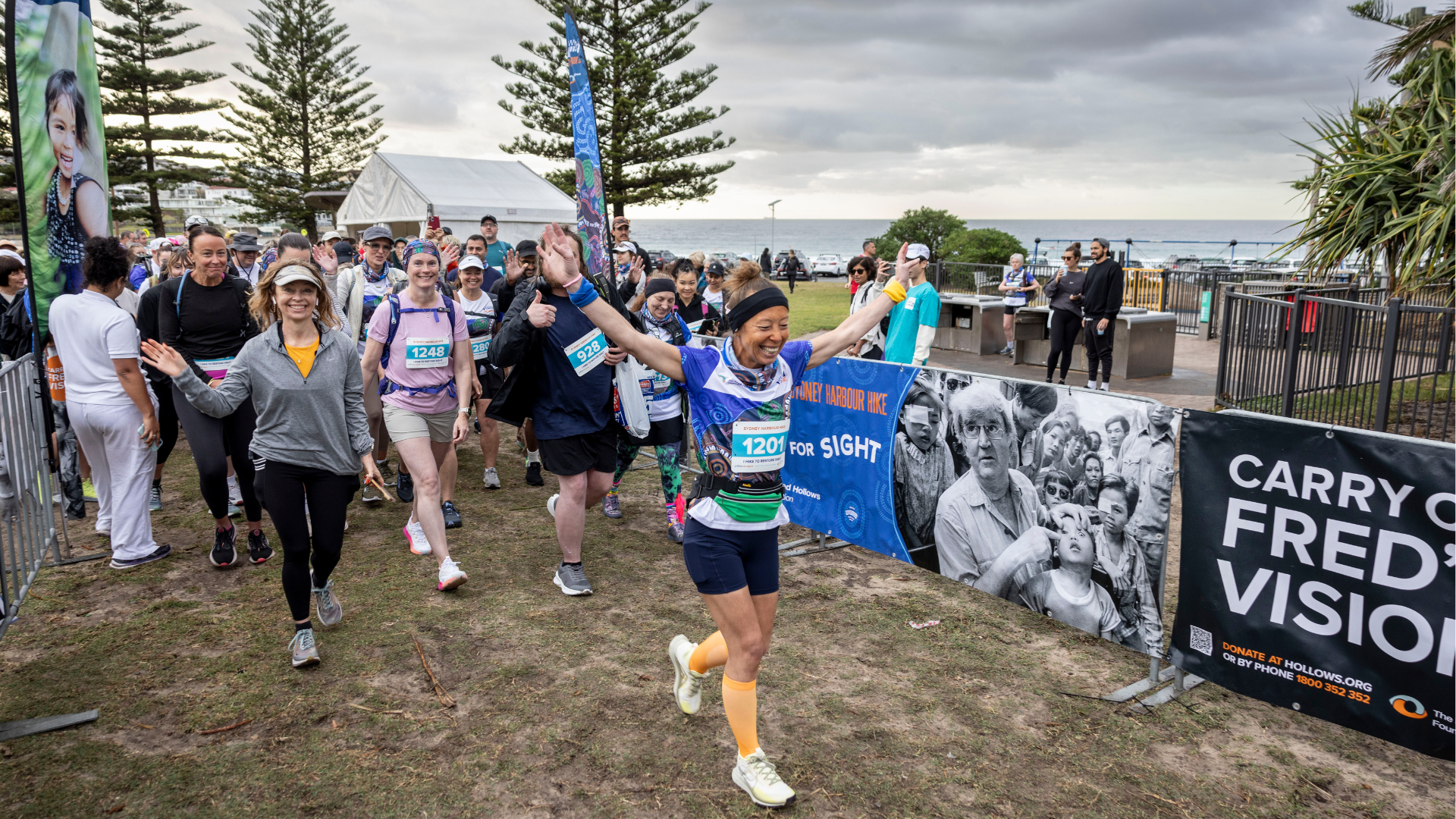Fundraising
10 tips to make your next fundraising event a success

Helping others not only makes us feel good but also boosts our mental and physical well-being. Fundraising is a fantastic way to lend a hand, support a social movement and spread the word about a worthy cause or charity that's making a real difference.
Check out our top tips about what to consider when you are planning your next event to make sure it’s a guaranteed success.
In a hurry?
Click on the link below to go directly to the fundraising idea you’re most interested in:
- Set clear goals
- Plan ahead
- Create a budget
- Identify your target audience
- Engage sponsors and partners
- Promote your event
- Offer unique experiences
- Provide regular updates
- Recruit and train volunteers
- Express gratitude
1. Set clear goals
When it comes to your fundraising goal, it's important to be realistic.
Setting an unattainable target will only lead to disappointment. It's a good idea to establish a primary goal and perhaps a stretch target to allow for some flexibility. Additionally, make sure your goal remains doable even after deducting expenses incurred during the event.
Choosing the most suitable type of event depends on your objectives. If your aim is to attract significant donations, consider organising an upscale gala-style event. On the other hand, if you want to foster community engagement and encourage student participation in fundraising activities, a trivia or movie night would be more appropriate.
Setting an unattainable target will only lead to disappointment. It's a good idea to establish a primary goal and perhaps a stretch target to allow for some flexibility. Additionally, make sure your goal remains doable even after deducting expenses incurred during the event.
Choosing the most suitable type of event depends on your objectives. If your aim is to attract significant donations, consider organising an upscale gala-style event. On the other hand, if you want to foster community engagement and encourage student participation in fundraising activities, a trivia or movie night would be more appropriate.
2. Plan ahead
To successfully organise large fundraising events, make sure you allocate enough time and resources for event planning. Simply put, you need to plan the process of planning itself!
One effective approach is to establish a planning committee comprising of staff and volunteers. Determine the amount of time each member can commit per week to ensure the event receives the necessary attention.
Start planning your event well in advance to ensure you have enough time to organise all the necessary details, such as venue selection, permits, logistics, and marketing.
One effective approach is to establish a planning committee comprising of staff and volunteers. Determine the amount of time each member can commit per week to ensure the event receives the necessary attention.
Start planning your event well in advance to ensure you have enough time to organise all the necessary details, such as venue selection, permits, logistics, and marketing.

Photo credit: The Fred Hollows Foundation
3. Create a budget
The easiest way to measure the success of your fundraising event is by creating a budget. With a well-defined budget, you can effectively track and manage expenses, as well as work out your overall revenue.
Develop a detailed budget that outlines all the expected expenses and potential sources of revenue. This will help you manage your finances effectively and make informed decisions throughout the event planning process.
Develop a detailed budget that outlines all the expected expenses and potential sources of revenue. This will help you manage your finances effectively and make informed decisions throughout the event planning process.
4. Identify your target audience
Determine who your ideal attendees are and tailor your event to appeal to them. Consider their interests, demographics, and motivations to create a compelling experience.
Who are these individuals? What inspires them to contribute? What are their interests and values? Additionally, you can utilise market research and demographic information to gain deeper insights into your prospective supporters. Factors like age, income, location, and interests should be taken into account while defining your target audience.
For instance, if you're organising a fundraiser to support The Fred Hollows Foundation, your target audience might include people passionate about Fred’s work, social justice, and global health outcomes.
Who are these individuals? What inspires them to contribute? What are their interests and values? Additionally, you can utilise market research and demographic information to gain deeper insights into your prospective supporters. Factors like age, income, location, and interests should be taken into account while defining your target audience.
For instance, if you're organising a fundraiser to support The Fred Hollows Foundation, your target audience might include people passionate about Fred’s work, social justice, and global health outcomes.
5. Engage sponsors and partners
Seek out sponsorships or partnerships with businesses, organisations, or individuals who align with your cause. They can provide financial support, in-kind donations or assist with marketing and promotion.
Plenty of businesses will be keen to help a good cause. When businesses donate 'things' rather than money, this is often called a 'gift in kind' or an 'in-kind donation.' Sometimes they can claim it on tax and advertise it to their customers to display their community involvement. A win-win situation!
Plenty of businesses will be keen to help a good cause. When businesses donate 'things' rather than money, this is often called a 'gift in kind' or an 'in-kind donation.' Sometimes they can claim it on tax and advertise it to their customers to display their community involvement. A win-win situation!
6. Promote your event
There are traditional methods of spreading the word such as leveraging your network of friends and supporters, sending out invitations via mail, using email, setting up phone calls or simply relying on good old word of mouth.
With the rise of social media, it’s a good idea to use tools like a Facebook event page and have the host committee, staff, and volunteers engage in peer-to-peer social media outreach on platforms like Twitter, Instagram, and TikTok.
No matter where they choose to promote the event, make sure they do it multiple times leading up to the big day. Start spreading the word early and follow up with people to confirm their attendance.
With the rise of social media, it’s a good idea to use tools like a Facebook event page and have the host committee, staff, and volunteers engage in peer-to-peer social media outreach on platforms like Twitter, Instagram, and TikTok.
No matter where they choose to promote the event, make sure they do it multiple times leading up to the big day. Start spreading the word early and follow up with people to confirm their attendance.

Photo credit: The Fred Hollows Foundation
7. Offer unique experiences
Create memorable experiences that encourage attendees to participate and donate.
Consider incorporating interactive elements, guest speakers, live entertainment, auctions, or raffles to make your event stand out.
Here are a few more fundraising ideas to consider:
Consider incorporating interactive elements, guest speakers, live entertainment, auctions, or raffles to make your event stand out.
Here are a few more fundraising ideas to consider:
- Themed events: Create an immersive and interactive fundraising experience by incorporating a specific theme. Whether it's a casino night, a masquerade ball, or a retro '80s dance party, a themed event can add excitement and draw in participants who are looking for a unique experience.
- Game night or trivia event: Organise a game night or trivia event where teams compete for prizes while also raising funds. It's a fun and interactive way to engage participants and encourage healthy competition, all in support of your cause.
- Silent auction: Put together a collection of purchase-worthy items or services laid out on a table. Guests can bid for the ownership of anything from a snazzy artwork to a singing lesson or a new website build.
9. Recruit and train volutneers
Volunteers play an important role in the success of a fundraising event.
Volunteers can assist with various tasks, such as registration, event setup, managing booths, or providing customer service. Provide them with clear instructions and training to ensure they represent your cause effectively.
Volunteers can assist with various tasks, such as registration, event setup, managing booths, or providing customer service. Provide them with clear instructions and training to ensure they represent your cause effectively.
Show appreciation to your attendees, donors, sponsors, and volunteers.
Send personalised thank-you notes, acknowledge their contributions on social media, and consider hosting a post-event gathering or sending follow-up emails to express your gratitude.
Send personalised thank-you notes, acknowledge their contributions on social media, and consider hosting a post-event gathering or sending follow-up emails to express your gratitude.

Photo credit: The Fred Hollows Foundation
Start your successful fundraising event now
If you choose to fundraise for The Fred Hollows Foundation, you’ll be fighting the injustice of avoidable blindness, and restoring sight to the needlessly blind by helping us train local eye health workers in over 25 countries, as well as equip and build hospitals and operating theatres.
Please contact us if you have any questions about our work or need fundraising support.
Email: fundraise@hollows.org
Phone: 1800 672 892
Please contact us if you have any questions about our work or need fundraising support.
Email: fundraise@hollows.org
Phone: 1800 672 892
COVER PHOTO CREDIT: MICHAEL AMENDOLIA
Meet the author
Related articles
View these articles

Sydney Harbour Hike raises over $257,000 to restore sight
On a Sunday in October, Sydney’s iconic coastline was the setting for an inspiring event—the Sydney Harbour Hike. With more than 600 walkers and runners coming together, the event raised a remarkable $257,557 to help end avoidable blindness.

Team Bangladesh meet hiker and fundraiser Zan Campbell
Alexander ‘Zan’ Campbell, an Australian man currently walking 40,000km around the globe raising funds for The Foundation, has seen our work first-hand as he travelled through Bangladesh. Our Bangladesh team welcomed the fundraiser, who has raised over $16,000 so far, to the capital Dhaka and gave him a tour around our partner hospital, the Ispahani Islamia Eye Institute & Hospital (IIEI&H).

How you can give back to those with avoidable blindness
The Fred Hollows Foundation is proud to carry on Fred’s work of restoring sight across the 25 countries where we work. This would not be possible without the contributions of our supporters. If you’re looking to help people around the world, there are so many ways to give back and make quality eye health care easily available to everyone.
